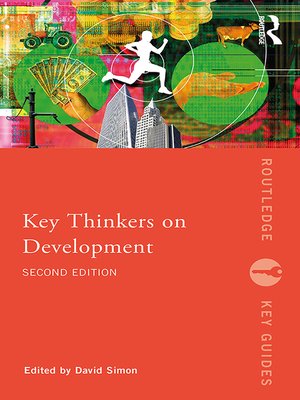
Sign up to save your library
With an OverDrive account, you can save your favorite libraries for at-a-glance information about availability. Find out more about OverDrive accounts.
Find this title in Libby, the library reading app by OverDrive.



Search for a digital library with this title
Title found at these libraries:
| Loading... |
Since its publication in 2006 as Fifty Key Thinkers on Development, this invaluable reference has established itself as the leading biographical handbook in its field, providing a concise and accessible introduction to the lives and key contributions of development thinkers from across the ideological and disciplinary spectrum. This substantially expanded and fully updated second edition in the relaunched series without the numerical constraint includes an additional 24 essays, filling in many gaps in the original selection, greatly improving the gender balance and diversifying coverage to reflect the evolving landscape of development in theory, policy and practice.
It presents a unique guide to the lives, ideas and practices of leading contributors to the contested terrain of development studies and development policy and practice. Its thoughtful essays reflect the diversity of development in theory, policy and practice across time, space, disciplines and communities of practice. Accordingly, it challenges Western-centrism, Orientalism and the like, while also demonstrating the enduring appeal of "development" in different guises. David Simon has assembled a highly authoritative team of contributors from different backgrounds, regional settings and disciplines to reflect on the lives and contributions of leading authorities on development from around the world. These include:
Key Thinkers on Development is therefore the essential handbook on the world's most influential development thinkers and an invaluable guide for students of development and sustainability, policy-makers and practitioners seeking an accessible overview of this diverse field and its leading voices.






